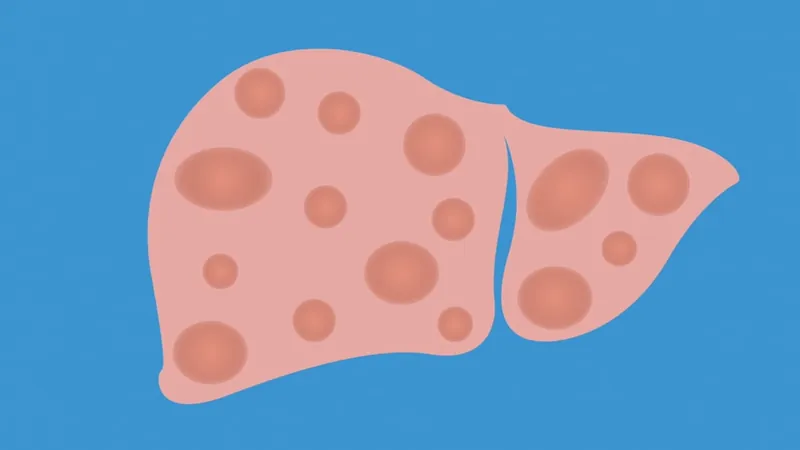
Revolutionary Molecule Offers Hope for Chronic Diseases Like MASH and Endometriosis
2025-09-02
Author: Sarah
Breakthrough in Chronic Disease Treatment
Macrophages, the body’s immune system warriors, play a crucial role in fighting infections and maintaining tissue health. Yet, in chronic diseases, these cells can transform into harmful versions that exacerbate inflammation and propel disease progression.
Targeting the Bad Guys in the Immune System
The challenge has always been to target these pathogenic macrophages while leaving the beneficial ones unharmed. But scientists have made a breakthrough, discovering specific markers that differentiate harmful macrophages from their protective counterparts. This led to the creation of an innovative molecule named Bobcat339, which can selectively eliminate the bad macrophages.
Promising Research Findings Revealed
Published in the Journal of Clinical Investigation, this research explored the effects of Bobcat339 in models of metabolic dysfunction-associated steatohepatitis (MASH), non-small cell lung cancer (NSCLC), and endometriosis. Researchers are hopeful that Bobcat339 could serve as a versatile treatment across various chronic inflammatory diseases.
Dr. Yingqun Huang, the study’s lead researcher from Yale School of Medicine, stated, "We've discovered a potent target for multiple chronic diseases and have a method—Bobcat339—to effectively combat it. We're also on the lookout for even more powerful compounds for treatment."
How Bobcat339 Works its Magic
In chronic diseases, the affected tissues undergo significant cellular changes, triggering healthy macrophages to become pathogenic. During the study, researchers simulated these disease environments to observe how healthy macrophages transformed. They pinpointed the overexpression of a gene called TET3 as a key player in this harmful transition, leading to increased inflammation and immune suppression.
Interestingly, while the overexpression of TET3 alone doesn’t make macrophages vulnerable to Bobcat339, the additional cellular changes induced by the disease context do. This specificity allows Bobcat339 to target the destructive macrophages without affecting the healthy ones.
Successful Results from Animal Testing
Bobcat339 demonstrated its efficacy in animal models, successfully eliminating pathogenic macrophages while sparing healthy ones. In trials involving MASH, NSCLC, and endometriosis models, the molecule significantly reduced liver damage and fibrosis, lowered tumor presence, and decreased endometriotic lesions, enhancing overall survival rates.
A Potential Game-Changer for Patients
Many patients with chronic diseases currently face limited treatment options. Bobcat339 holds the promise of becoming an essential part of managing these conditions. Dr. Huang’s team is diligently conducting safety studies in animal models to ensure its efficacy and minimal side effects.
If ongoing tests continue to show a favorable safety profile, human trials may soon be on the horizon, potentially offering new hope to millions suffering from chronic ailments.


 Brasil (PT)
Brasil (PT)
 Canada (EN)
Canada (EN)
 Chile (ES)
Chile (ES)
 Česko (CS)
Česko (CS)
 대한민국 (KO)
대한민국 (KO)
 España (ES)
España (ES)
 France (FR)
France (FR)
 Hong Kong (EN)
Hong Kong (EN)
 Italia (IT)
Italia (IT)
 日本 (JA)
日本 (JA)
 Magyarország (HU)
Magyarország (HU)
 Norge (NO)
Norge (NO)
 Polska (PL)
Polska (PL)
 Schweiz (DE)
Schweiz (DE)
 Singapore (EN)
Singapore (EN)
 Sverige (SV)
Sverige (SV)
 Suomi (FI)
Suomi (FI)
 Türkiye (TR)
Türkiye (TR)
 الإمارات العربية المتحدة (AR)
الإمارات العربية المتحدة (AR)